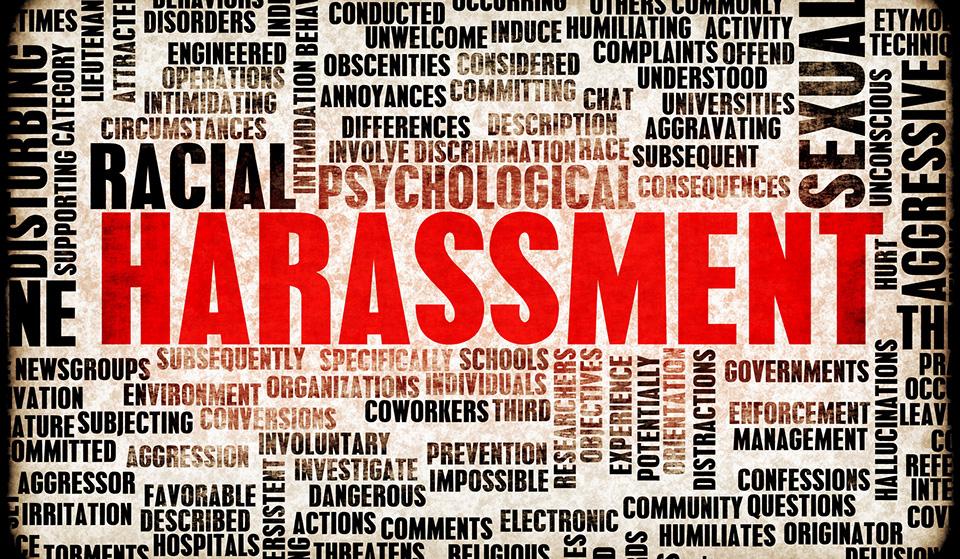
Sexual Harassment
Definition: Harassment is offensive conduct of an unwelcome nature on the basis of any of the characteristics identified.
Sexual harassment is a form of discrimination that is specifically prohibited by law and the courts. There may be sexual harassment by those of the same sex as well as by those of the opposite sex.
Sexual harassment is distinguished from consensual or welcome sexual relationships by the introduction of the elements of coercion, threat, or are unwelcome by nature. Sexual harassment may be Quid pro quo, "this for that," occurs when someone exerts his/her authority over the victim explicitly or implicitly that connects a favorable action for compliance.
A hostile environment may exist when such conduct is persistent and/or pervasive and when it unreasonably interferes with an individual's ability to participate, learn, and/or work. Factors considered in determining whether an environment is hostile include whether the conduct was:
- Verbal or physical or both
- A single incident or a pattern of behavior
- Perceived to be hostile or offensive to a reasonable person
- Exercised by an individual in a position of authority; and/or
- Directed to one or more individuals or class of individuals
Examples of Sexual Harassment
The following are examples of behavior that could be interpreted as sexual harassment.
These examples are meant to be illustrative only; this is not an exhaustiive list.
- Assigning lower grades on work of student who won't have date/have sex.
- Grant job/classroom favors to those who participate in sexual activity
- Repeatedly asking a person out for dates or to have sex
- Continuing unwelcome behavior by saying, "She sad no, but I know that she really meant yes"
- Sexual innuendoes and comments
- Touching, patting, pinching, stroking, giving a back rub, squeezing, tickling or brushing against a person
- Leaving obscene messages on campus computers or sending obscene e-mail message
- Withholding or providing differential, training, information, promotion, and evaluation practices based on gender.
- Discussing sexual activities
- Telling off-color jokes
- Using demeaning or inappropriate terms, such as "Babe," "honey"
- Sexually suggestive sounds or gestures such as sucking noises, winks, or pelvic thrusts
- Calling a person sexually derogatory names
- Rating a person's sexuality
- Using crude and offensive language
- Ogling or leering, staring at a woman's breasts or a man's derriere
- Spreading rumors about a person's sexuality
- Graffiti about a person's sexuality
- Name calling, such as bitch, whore, slut
- Letters, notes, telephone calls, or other material of a sexual nature
- Pervasive displays of pictures, calendars, cartoons, or other material with sexually explicit or graphic content, pornographic photos
- Exposing genitals
- Commenting on physical attributes
- Telling someone what sexual behaviors the speaker would like to engage in with that person\Whistling or yelling at women who walk by or rating them
- Providing sexist evaluations or denying women opportunities or promotions
- Cutting women out of social networks or denying them the privileges and perks required for success
- Assigning women to "sex stereotyped service tasks that lie outside their job descriptions", such as cleaning or getting coffee; giving demeaning and inappropriate assignments because of gender
- Engaging in taunting, pranks, and other forms of hazing designed to remind women that they are different and out of place
- Having gender based expectations for the student/worker or for the work involved
- Using indecent gestures
- Sabotaging the victims work
- Engaging in hostile physical conduct
- Threatening rape
- Stalking a person
Human Resources
Employee and Labor Relations
(707) 826-3626
hr@humboldt.edu
EO Quicklinks